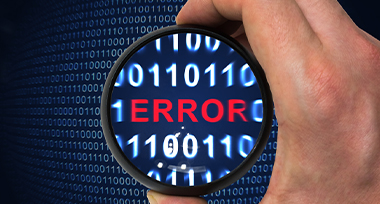Guide to Buying Virtual POS without Setting Up a Company
With the spread of online commerce, the number of people who want to use virtual POS without owning a company is increasing. Virtual POS purchasing options now offer users the opportunity to use it without owning a company. With the increase in technological opportunities, individual POS solutions are also preferred. In order to purchase POS without establishing a company, it is possible to benefit from such an advantage by establishing a sole proprietorship.
In order to use payment systems without establishing a company, it is necessary to have domestic companies approved by the Central Bank of the Republic of Turkey. In this process, which can also be realized through an intermediary company, it is easier to continue by establishing a sole proprietorship. The use of virtual POS, which is among the individual payment recommendations and is highly preferred, also provides serious advantages.
What is Virtual POS for Individual Users?
The use of virtual POS is very important among individual payment methods among payment solutions. In order to be able to use POS and receive payments as an individual, it is necessary to have at least a sole proprietorship. Individual users, for example people who provide their own services or make sales, can also use virtual POS for individual card transactions.
Since the definition of virtual POS is a method of receiving payment as a result of a trade, as in the use of physical POS, it is mandatory to have a company. However, it is also possible to set up a sole proprietorship and have virtual POS installed as personal payment options in an easy way.

How Does Individual Virtual POS Tax Liability Work?
Virtual POS There is a tax liability in their use, even if it is an individual use. Considering the virtual POS tax liability, it can be said that there is also a responsibility in this regard. In terms of individual card transactions and tax, the use of virtual POS in sole proprietorships is also subject to tax, as it is known to be a tax responsibility.
Tax notification is also mandatory for virtual POSs, which are among personal payment taxes. According to the tax law within the scope of personal business taxes, data calculation is made on earnings regardless of the number of employees. Therefore, it is essential to have at least a sole proprietorship for the use of virtual POS.
Advantages of Getting Virtual POS Without Establishing a Company
In accordance with the legislation, it is not possible to benefit from the advantages of payment systems without establishing a company. Virtual POS installation is made with a tax certificate. In virtual POS established with a sole proprietorship, users benefit from advantages within the framework of individual POS opportunities. With the use of virtual POS with options such as next day payment, weekly payment, it is also possible to benefit from individual payment convenience opportunities.
Individual sales advantages differ from corporate company advantages. For this reason, it is possible to benefit from the benefits more advantageously with the correct use of virtual POS. Another way to use Virtual POS individually is to use an easy link.
Virtual POS Setup for Individual Sellers
When using individual sales and POS systems, the POS installation process is also curious. Technically, POS installation cannot be done without a tax certificate. For sole proprietorships, their installation is carried out without a different situation in terms of virtual POS installation steps.
In individual business integrations, installation processes are generally completed in a simple way. Personal payment settings vary according to the individual’s preferred collection period, POS details, etc.
With a virtual POS institution for individual merchants, they can perform collection and payment transactions wherever they go without a physical POS. This increases the flexibility of merchants and provides customers with a wider range of payment options. The variety of payment methods and secure infrastructure offered by Virtual POS helps businesses improve customer satisfaction and increase sales
In order for individual sellers to make virtual POS installations, they need to apply with their sole proprietorships and tax certificates. Banks usually request documents such as application form, business documents and identity documents. After the application is approved, the virtual POS system is installed and opened for use in line with the instructions given by the bank.
Customer service provides support to all kinds of users. You can get solutions to your problems by getting the necessary support with the Virtual POS device number. Banks usually offer customer service through communication channels such as phone, email or live chat. Users can get support using these channels when they encounter any problems.
The use of Virtual POS also involves tax liability for individual company owners. They must report income and file tax returns. Otherwise, sanctions are applied. Tax liability may vary depending on the amount of income generated by the business and tax legislation. Individual sellers should regularly monitor their income and fulfill their tax obligations. In addition, getting support from tax advisors or accounting experts can help them manage their tax liability more effectively.
Popüler Ürünler
Benzer Blog İçerikleri İlginizi Çekebilir

What is Virtual POS? How to Get Virtual POS?
Virtual POS systems are one of the most important motivations supporting the increasing e-commerce volume. Virtual POS (

Virtual POS Error Codes and Solutions
Virtual POS error codes prevent e-commerce activities from continuing uninterruptedly. It also creates a loss of reputat

10 Profitable Business Ideas for Those Who Want to Start Their Own Business
No matter how difficult economic conditions become, many people dream of starting their own business. Young, women, midd





